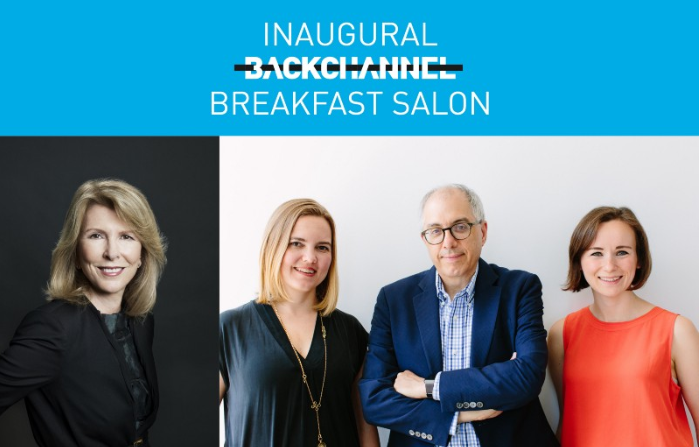
If there’s one thing the most well-known tech conferences share, it’s scale. TechCrunch Disrupt, the most popular of the big media-run events, sees thousands of attendees each year, and Recode got roughly 700 people to attend its 2016 flagship Code Conference. And then there are the truly massive tech company-hosted events like Salesforce’s Dreamforce, which drew over 170,000 attendees earlier this year.
For its first live event, Condé Nast-owned tech site Backchannel is keeping things much smaller — but, it argues, no less ambitious: Its first Backchannel Breakfast Salon will invite just 30 people to New York City’s Ace Hotel to talk about technology, careers, and the interaction between the two. While Backchannel has invited BBG Ventures founder Susan Lyne to talk about her own diverse career as a entrepreneur, television producer, and investor, her real role is to be a facilitator of conversation rather than the center of it. Guests will be expected to come to the discussion-centered breakfast seeking guidance about their own issues and willing to offer advice to others. The effort will be an “experiment in radical intimacy,” Backchannel editorial head Jessi Hempel told me.
“All of us are very used to these big conferences that have a lot of people in the audience and a few people on the stage talking outward. The audience is there to hear, not necessarily there to interact,” she said. “In 2016, that format feels tired.”
The event is one of the first big efforts from Backchannel since Condé Nast bought it from Medium earlier this year. With the move, Backchannel gained resources and the ability to extend its brand to different forms. While the web has no shortage of tech sites, Backchannel aims to differentiate itself with a mix of unique, deeply reported stories and a focus on getting readers more deeply involved in its coverage. In September, Backchannel interviewed Melinda Gates about her new effort to get more women involved in tech. At the end of the post, Backchannel asked readers for suggestions for which people and organizations Gates should support. Around 200 people — including the founders of Girls Who Code and Tech Ladies — responded to the prompt. Backchannel then took some of the best responses and turned them into a memo to Gates, who responded to that post in the comments thread using Medium’s commenting tools.
Inviting people to participate more deeply in big conversations about the development of the technology industry has become a core part of Backchannel’s mission and brand. “When it came time to do an event, we realized that the core question for us was: What happens if instead of caring about scale as a digital media operation, we care about depth and get to know our readers really well?” Hempel said.
Backchannel hopes that putting a mix of people from different demographic and career backgrounds in close proximity will help spark unlikely relationships that pay off in the future. To pull that off, the site is making a point to take the long list of people who have applied to attend the event and curate a group with the widest range of experiences and roles (race and gender will also be factors). Among the questions Backchannel asks interested people: “What are you working on?” “What do you want to be working on?” “What would you like help on?” Backchannel has seen “considerable interest” in the event, said Hempel, who wouldn’t share exact numbers.
The goal isn’t to be exclusive, though. “We’re not curating for importance,” said Hempel. “You’re no more likely to get into our breakfast if you have ‘CEO’ in your title than if you have ‘intern.’ If you have $120 and you really want to come and can explain to us why, you have as good a good a shot as anyone else.”
Backchannel hopes that the approach, which is still experimental, will be successful enough that the site can expand the model beyond New York City to other big tech hubs. For this first effort, the site’s staff has been focused on making sure that the event pays for itself. Future iterations could involve admitting fewer (or more) guests, and possibly tweaking the $120 ticket price.
“Right now, we’re not looking to make money off of it beyond meeting our expenses. That’s not our goal yet,” said Hempel. “We’re really focusing on this as a mission-driven event.”